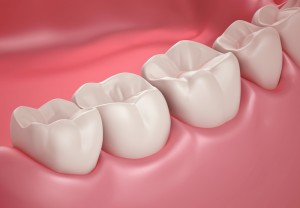You may be brushing a few times every day, but if you’re not taking the time to floss as well, your smile isn’t getting all the attention it deserves.
In general, we recommend flossing at least once a day to remove the food that has collected between your teeth during the day. If you choose not to floss, this food can stimulate the growth of decay-causing bacteria. It can also turn into plaque over time. Together, bacteria and plaque release toxins that cause bad breath, in addition to destroying tooth enamel and causing gum disease. And once gum disease sets in, there is no absolute cure.
That’s why flossing is so important.
How to Floss Effectively
If you’re not sure how to floss effectively, let your dentist or hygienist know at your next appointment. They would be happy to show you how. For best results, floss between every tooth, including your very back teeth.
Your dental team can also recommend a specific type of floss for you to use, in addition to talking with you about the rest of your oral health routine. For optimal oral health we recommend that patients:
- Brush at least twice a day, or after every meal if possible
- Floss at least once
- Rinse with an antibacterial or fluoride mouthwash
You can also learn about proper flossing by watching the video below.








